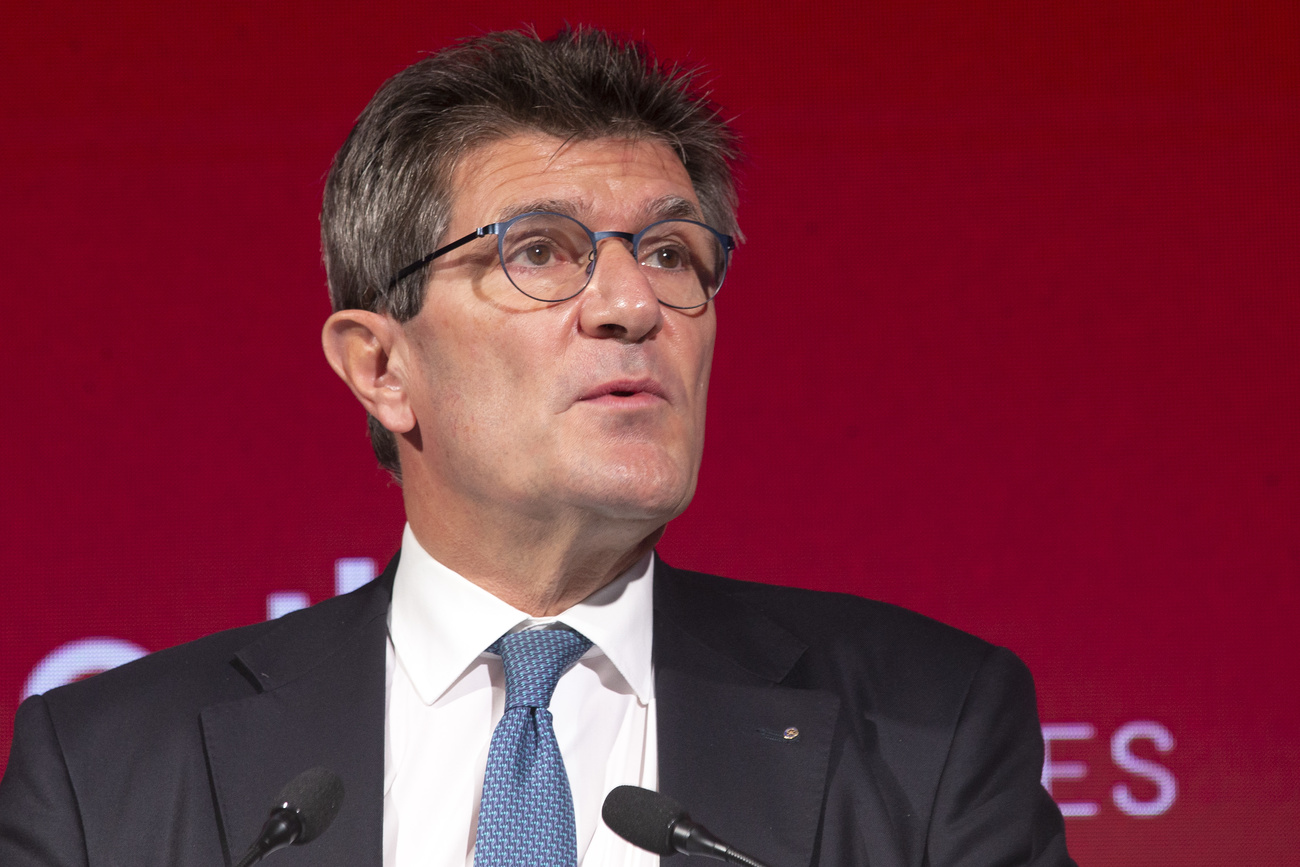Switzerland’s global wealth crown up for grabs

The world’s richest people have been tipped to favour Hong Kong bank vaults over Swiss in the next couple of years. Predicting the future in the opaque world of global wealth management is anything but straightforward.
Data on where millionaires park their cash is hard to come by, while turbulent global politics makes it difficult to decipher which countries will offer the best wealth management conditions in future.
+ How private banking took root in Switzerland
For generations, Switzerland has been the go-to destination for offshore wealth. Private banks are as synonymous with the Alpine state as chocolate and cheese. The wealth management industry even survived a United States-led assault on tax evasion that six years ago seriously eroded Switzerland’s fabled banking secrecy laws.
New geopolitical pressures, including a shift of wealth and power to the east and war in Europe, have revived whispers that the ultra-rich will empty Swiss vaults and take their money elsewhere.
The Boston Consulting Group (BCG) is convinced that Hong Kong will snatch the title of cross-border wealth champions from Swiss banks by the end of 2025. Singapore is also fighting hard for second spot while a new-found passion for Dubai from Russia’s wealthy elite has pushed the United Arab Emirates into the role of new challenger.
Global tensions shook up offshore wealth last year. This resulted in millionaires and billionaires spraying $12 trillion of their assets across national borders, which was a notable increase from 2021, says BCG.
Swiss banks lose out
But precious little appeared to come the way of Swiss banks as Russian oligarchs were sanctioned and fears emerged about the demise of Credit Suisse, which were ultimately proved correct in March.
Wealthy Credit Suisse clients withdrew CHF110 billion ($125 billion) in the last three months of 2022 and a further CHF60 billion in the first quarter of 2023. UBS, which bought Credit Suisse in March, only gained an extra CHF28 billion in net new assets (NNA) from the deal.
+ Hong Kong ‘to become leading wealth centre’
The picture was also bleak for 73 other Swiss banks, including Julius Bär, Pictet and Lombard Odier, according to a study from consultancy group KPMG. Wealthy clients brought just CHF45 billion of fresh money to these Swiss banks in 2022, which is well below the CHF131 billion recorded in 2021.
“The weak inflows of net new money probably resulted from the negative impact of the recent disruptive changes to the Swiss banking landscape and an uncertain geopolitical environment,” KPMG financial services partner Christian Hintermann told SWI swissinfo.ch. “We expected stronger asset inflows as the banks continue to maintain successful operations and are well positioned globally.”
Is this indicative of a sustained trend or a mere temporary hiccup? KPMG believes the stability and expertise of Swiss private banks will eventually prevail. But BCG is certain that Swiss dominance will continue to be eroded by other offshore wealth centres.
Turbulence long-term benefit
Part of the reason is that the faster pace of wealth creation in China and other Asian countries will to a large degree stay in that region. BCG forecasts the wealth of the richest people in the world to swell from $460 trillion last year to $600 trillion in 2027. The rate of new wealth in Asia and the Middle East is forecast to easily outstrip the west.
Switzerland will remain a strong force in wealth management thanks to its deep-rooted banking expertise and safe haven status, but Russian sanctions and the collapse of Credit Suisse have weakened its attractiveness, says BCG.
François Mollat du Jourdin, founder and CEO of the French-based MJ&Cie Family Office, which has a Swiss presence, thinks differently.
“Geopolitical turbulence will not hurt Switzerland in the long run and will probably only strengthen its position in the global wealth industry,” the chair of European Network of Family Offices told SWI swissinfo.ch.
“If you are a successful entrepreneur in a politically unstable country your priority is to secure your wealth. No other jurisdiction worldwide can guarantee political stability and regulatory certainty with such high levels of expertise in wealth management.”
The Association of Swiss Private Banks (ASPB) says a quarter of all global cross-border assets are held in Swiss vaults and crunches its own numbers to dispute BCG’s claim that Hong Kong will soon snatch the Swiss crown.
Swiss private banks managed CHF2.2 trillion of assets from foreign private individuals and families in 2020 and asset managers a further CHF1.4 trillion from overseas institutional investors. These figures are largely unchanged today, says the ASPB.
Statistical anomalies
The latest Hong Kong Securities and Futures Commission data from 2021 reveals that just over half the $1.36 trillion total assets managed by its private banks (some $707 billion) was deposited by offshore clients – 16% from mainland China. A further $1.3 trillion of overseas funds was invested with Hong Kong asset managers.
Hong Kong and Singapore are not content to stand still with so much potential new wealth up for grabs in the coming years. Switzerland helped set up the wealth management industry in Singapore while Hong Kong’s financial market bears the legacy of former British rule.
In addition, both jurisdictions have launched drives to encourage the inflow of new family offices that manage the assets of wealthy families.
In Singapore, “the number of single-family offices, that provide wealth-management, has jumped nearly threefold since the pandemic began, largely driven by an influx of wealthy Chinese families,” stated high-end property consultancy group Knight Frank in its Wealth Report 2023.
But Singapore lacks the depth of Swiss know-how while question marks still hang over the political stability of Hong Kong, which is coming increasingly under control from mainland China regulators, according to Mollat du Jourdin.
In the meantime, Switzerland has been busy finding new ways to service the assets of the wealthy since the dependable money-spinner of banking secrecy was dismantled by the US. Swiss banks have been forced into adopting more innovative approaches to preserving and growing client wealth, said Mollat du Jourdin.
“Thirty years ago, the Swiss wealth management model was undeclared money deposited in cash for the purposes of tax evasion,” he said. “The industry has recently been through tremendous change to make it more transparent and competitive in attracting wealth by offering services that add real value to clients.”

In compliance with the JTI standards
More: SWI swissinfo.ch certified by the Journalism Trust Initiative














You can find an overview of ongoing debates with our journalists here . Please join us!
If you want to start a conversation about a topic raised in this article or want to report factual errors, email us at english@swissinfo.ch.